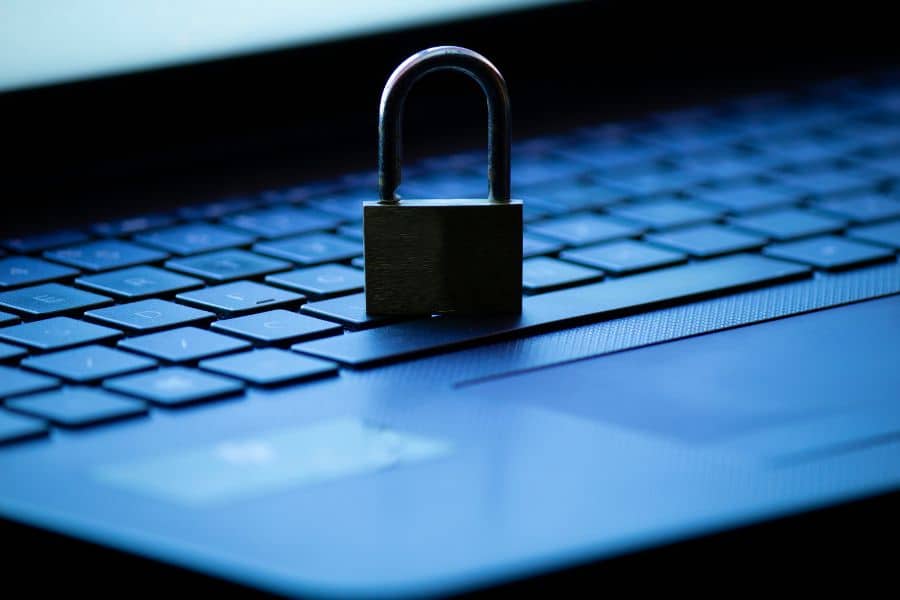Protecting sensitive data is not only a priority but a basic requirement for businesses. As businesses become more reliant on digital systems, the risks of cyber attacks including data breaches, fraud, and unauthorised access increase. Many businesses begin data protection by implementing basic security measures such as firewalls and password policies, expecting that these security measures will be enough. However, given the sophistication of modern cyber threats, these best practices are frequently insufficient.
Businesses that fail to effectively protect their sensitive data can face serious consequences. Data breaches can cause financial losses, legal penalties for noncompliance with legislation, and long-term reputation damage. Clients and stakeholders lose trust, and regaining it requires time and effort. Simply put, insufficient data protection threatens the entire business, making strong cybersecurity tactics essential for long-term success.
What Are Cyber Threats?
Before diving into protection strategies, it’s essential to understand what cyber threats are. A cyber threat is defined as any malicious activity that attempts to compromise data, systems, or networks. Cyber threats take many forms, and their effects on businesses can be serious.
Common cyber threats include the following:
- Malware: Malware is malicious software designed to damage or gain unauthorised access to systems.
- Phishing: Phishing is a fraudulent attempt to obtain sensitive information, often by imitating trustworthy sources.
- Ransomware: Ransomware is a sort of software that prevents users from accessing their computers or data unless they pay a ransom.
Falling victim to these risks can result in data theft, financial loss, and reputational damage. This is why data protection is essential.
Why Is Data Protection Critical for Businesses?
Data protection has become essential for all businesses, regardless of size or sector. Sensitive data, such as client information, intellectual property, and financial information, must always be kept secure.
Failure to protect data can have serious effects, including:
- Legal liabilities: Noncompliance with data protection standards such as GDPR or HIPAA can result in major fines.
- Financial loss: Data breaches frequently result in serious financial loss, both through direct loss and downtime.
- Reputation damage: Losing client trust might be one of the most damaging long-term consequences of a data breach.
In an era of widespread cyber risks, businesses must prioritise securing sensitive data as part of their fundamental operational plans.

1. Implementing Encryption
Encryption is one of the most effective ways to secure sensitive data. Encryption converts readable data into an unreadable format, which means even if accessed, the data can’t be read without the necessary decryption key.
Tips for using strong encryption:
- To ensure optimal security, use the Advanced Encryption Standard (AES) with a 256-bit key size.
- Make that all data in transit and at rest is encrypted.
- To prevent unauthorised access, keep encryption keys up to date and managed on a regular basis.
Encryption provides a strong layer of protection, making it far more difficult for hackers to exploit sensitive data.
2. Access Control Measures
Another key cybersecurity strategy is implementing access control systems to guarantee that only authorised individuals have control over sensitive information. Effective access management not only limits access, but also monitors and tracks user activity.
Key Access Control Strategies:
- Implement multi-factor authentication (MFA) to provide an additional layer of security for users who log into important systems.
- Use role-based access control (RBAC) to provide specific permissions depending on an employee’s job function.
- Regularly check and adjust access permissions to ensure that people who no longer need access are removed from the system.
- Businesses can reduce their exposure to internal and external risks by limiting access to critical data.
3. Employee Training and Awareness
Employees usually serve as the first line of defence in protecting sensitive data. Employee training is therefore extremely important in cybersecurity. Many cyberattacks, like phishing, rely on human error, so employee awareness is very important for preventing breaches.
Best practices in employee training:
- Conduct regular cybersecurity awareness programs to educate the team on the latest cyber threats.
- Employees should be trained to recognise phishing emails, suspicious links, and password security practices.
- Encourage the use of password managers and frequent password updates.
Businesses can dramatically lower the possibility of cyberattacks by educating their team about the risks and how to manage them.
4. Using Advanced Security Tools
Businesses can protect sensitive data using a variety of advanced security tools. These systems, generally powered by artificial intelligence, can detect and respond to threats in real time.
Recommended security tools include:
- Intrusion Detection Systems (IDS) and Intrusion Prevention Systems (IPS) monitor network traffic and prevent unauthorised access.
- Data Loss Prevention (DLP) tools prevent sensitive information from leaving the network unintentionally.
- Use Security Information and Event Management (SIEM) software to analyse and respond to security incidents across your network.
- Investing in modern tools enables organisations to strengthen their defences and respond quickly to evolving cyber threats.
5. Creating an Incident Response Plan
Even with the strongest defences, no system is totally secure from cyberattacks. A well-documented incident response strategy can help to greatly reduce the damage caused by an attack.
Key elements of an incident response plan:
- The incident response team should have clearly defined roles and duties.
- Defined processes for detecting, containing, and eliminating threats.
- Procedures for data recovery and restoring to normal operations.
- Communication protocols for notifying stakeholders and authorities of the breach.
An efficient incident response plan guarantees that your company recovers quickly and limits the impacts of a cyberattack.
Protecting sensitive data from cyber attacks requires a complete approach that includes encryption, access control, employee training, regular audits, advanced security tools, and a strong incident response plan. Businesses that adopt these best practices can protect their data and reduce their vulnerability to threats.
Data protection is more than just preventing attacks; it’s about assuring your company’s resilience, trustworthiness, and security in the age of technology.








